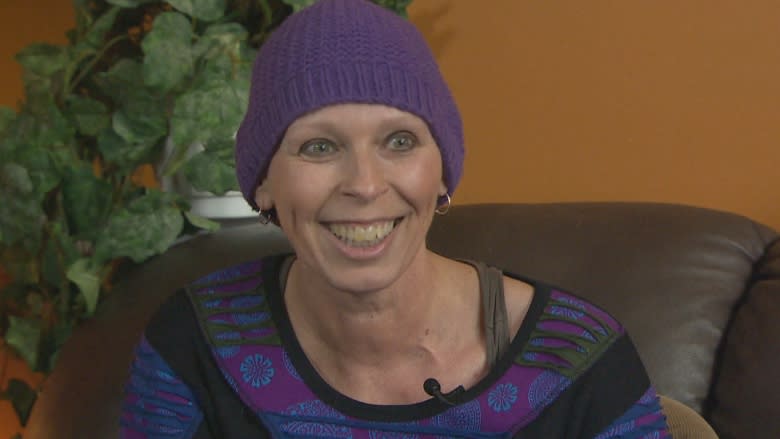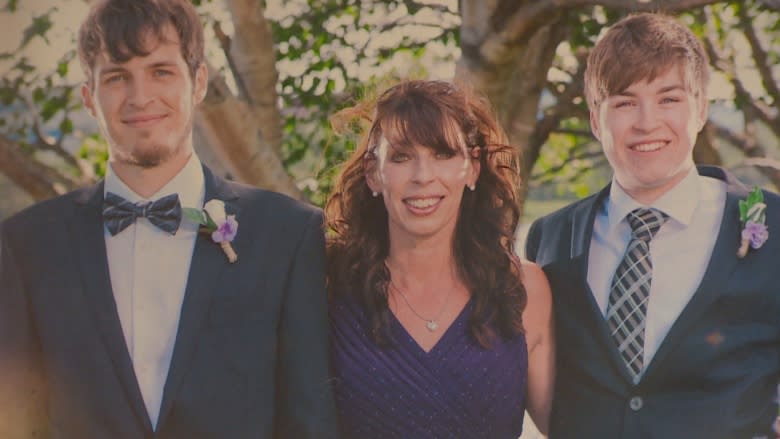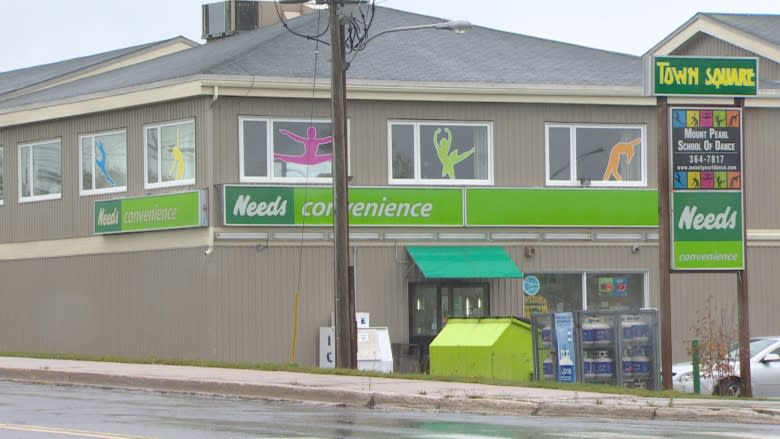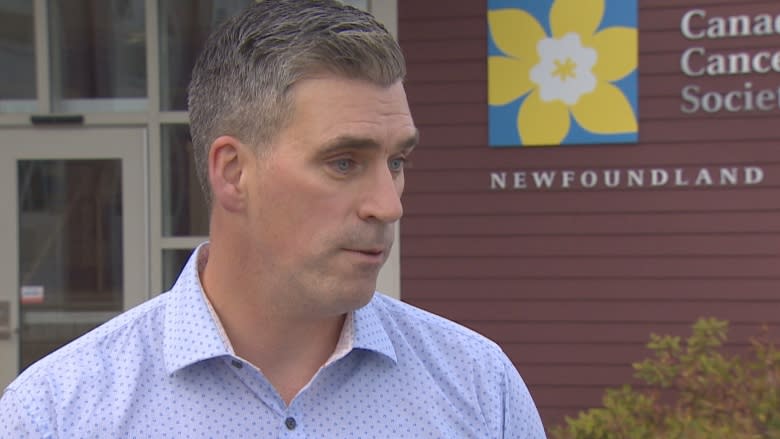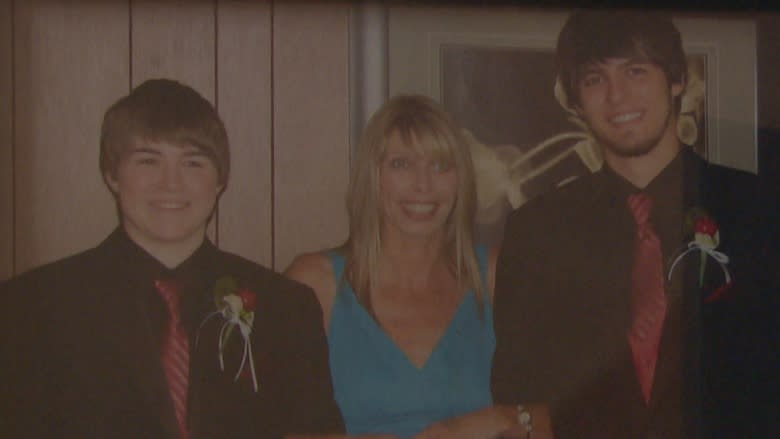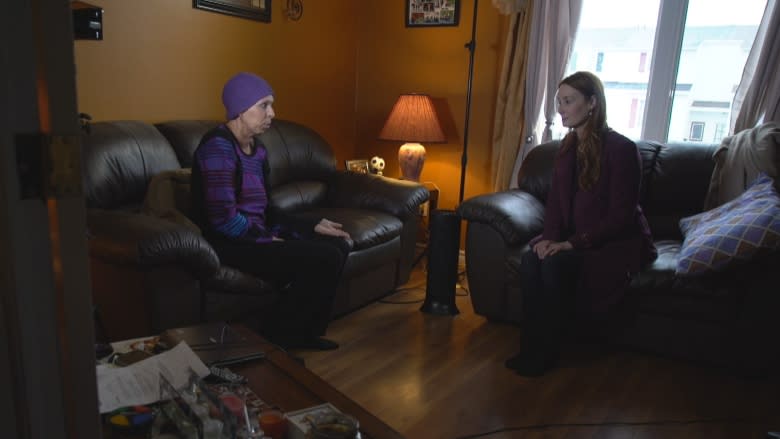Fighting 'chemo brain': Mother determined to make good memories
Diane Bishop was grateful to celebrate her son's 24th birthday recently. Like mothers do, she bought a cake with a big 2-4 on it.
The response was laughter. Bishop's son was actually turning 23.
She blames the mistake on "chemo brain," chuckling as she tells the story to CBC News.
"That was a good laugh and a good memory he will have — 'Mom forgot how old I was.'"
Bishop raised two sons on her own and said good memories are the most precious gifts she can give.
"We're celebrating for next year. Just in case I'm not here, we have 24 taken care of."
Bishop has Stage 4 triple negative breast cancer. She was diagnosed in April 2016 and since then, the aggressive form of cancer has spread to her pelvic bone and lung.
'I force myself to get up'
She endured surgery, three rounds of chemotherapy and radiation, but so far, nothing has worked.
The treatments have ravaged her body. Bishop walks with a limp and has trouble lifting her right arm.
She has a collection of hats to keep her bald head warm. Wigs, she said, are too uncomfortable.
Bone and joint pain, nausea, headaches and severe fatigue make daily life difficult.
"I force myself to get up," she said.
"I force my way through, and I go to work. Because that's what got me this far, getting up and going to work, and keeping your daily routine as normal as possible."
Bishop has been the franchisee of a Needs Convenience in Mount Pearl for the past five years. She loves her job, and finds comfort being around her customers.
But physically, work is a struggle.
"You try to stay one step ahead of what's going to happen so I started thinking, the store is becoming a little more difficult to get up and go to, so what happens when I can't do that anymore? What happens when I can't work?" she said.
"I started making a few phone calls, and it's not good."
'How do we buy groceries?'
Bishop found out she can't afford to quit. She was told she qualifies for $1,127 per month in employment insurance and Canada Pension Plan disability benefits. That's barely enough to pay her mortgage.
"I am the sole breadwinner in this household," she said. "So if I take my $1,127 and pay my mortgage, then how do we buy groceries? How do we pay normal household bills? We don't."
Bishop has lived in her Mount Pearl home for 10 years. The idea of selling it now and moving into a cheaper apartment — if she could find one — is overwhelming.
"When you get sick you want to be in your own home, in your own bed," she said.
"I want to be here as long as I can. This is my comfort zone, this is what I know, and this is where I want to stay."
Bishop doesn't know how much longer she has to live, but she does know the odds.
It happens on a 'regular basis'
Unfortunately, Bishop's case is not an isolated incident, according to the Newfoundland and Labrador chapter of the Canadian Cancer Society.
"We see it on a regular basis and people saying, 'We've had to sell off property, things that we own,so that we can come in and get the treatment' that they desperately need," executive director Matthew Piercey told CBC Wednesday.
"That should never be the case."
Piercey applauded Bishop for sharing her story and said eligibility criteria needs to be reviewed.
"Continue to be a voice talking to government so that when her situation is being heard, that's when people are going to start making change. You need that champion, so she can be a champion," he said.
'I can't frown and dwell'
Patients like Bishop who have Stage 4 triple negative breast cancer typically survive 18 months to two years, Bishop said.
So she's acutely conscious of time passing, and wants to spend every moment with her family, making memories that will outlast her.
"I'm trying to smile every day, and I do," she said.
"I go to work and I smile. I go out and I do things, and I smile. I can't frown and dwell on cancer every day. But unfortunately now I face the new problem of how do I financially survive?"
Bishop is taking a fourth shot at chemotherapy and she'll find out in November if the treatment worked. If it doesn't, she has no more local treatment options.
She will then look at joining a clinical trial in Toronto — another expense she can't afford.

